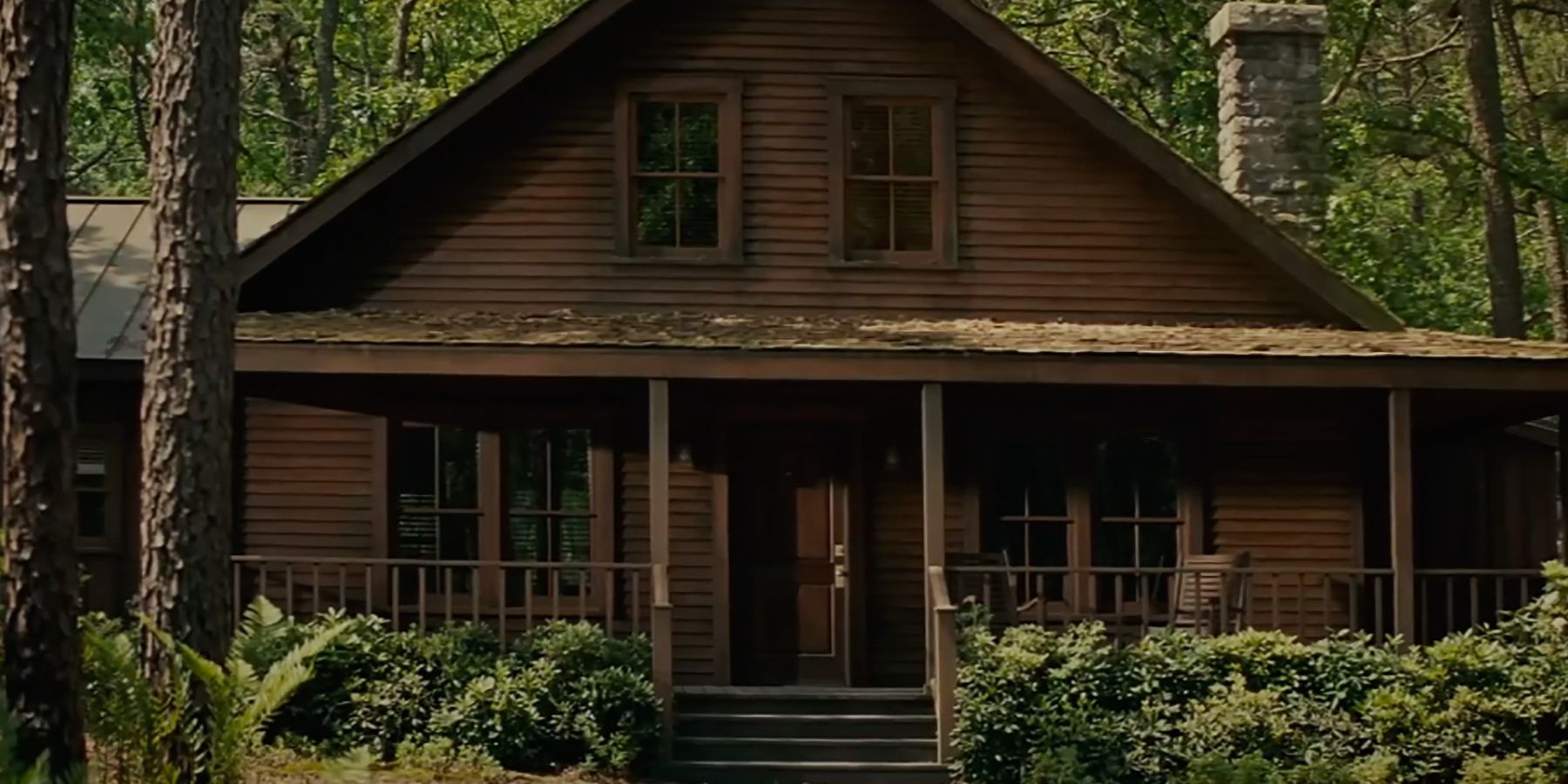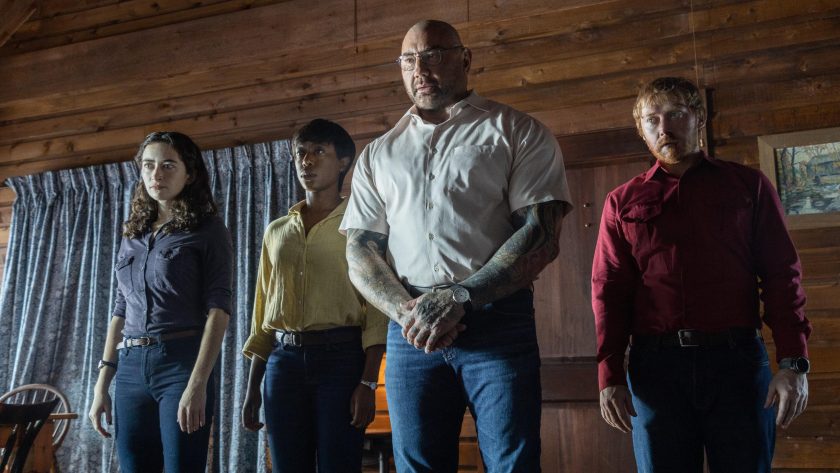Aadesh Gupta reviews M. Night Shyamalan’s newest apocalyptic psychological horror film about a family taken hostage in a remote cabin.
One of the greatest agonies a person can experience is that of helplessness. Whether it’s bearing pain or having to inflict it on others, any semblance of control vanishes and vulnerability reaches its apex. M. Night Shyamalan achieves this feeling in his latest feature, Knock at the Cabin, a strikingly straightforward thriller about a helpless external force invading a helpless family.

Unlike Cabin in the Woods, another film where a group of characters face a predicament in an isolated cabin, Shyamalan minimises comic relief for a greater sense of existential dread. After a credits sequence that recalls Se7en, the film opens on Wen (Kristen Cui), the adopted daughter of a gay couple, Eric (Jonathan Groff) and Andrew (Ben Aldridge). She is collecting grasshoppers in a jar before she’s interrupted by Leonard (Dave Bautista) and his three associates.
Much like how Wen monitors the grasshoppers, a higher power seems to dictate Leonard and his team through the awareness of their fate. Biblically described as “The Four Horsemen of the Apocalypse”, these intruders then inform the family of humanity’s judgement: an apocalypse that will occur if one of them doesn’t kill another.
It’s a gripping premise, but also one that can easily be misfired. Shyamalan has been critiqued frequently for clunky writing and overreliance on plot twists. But what many critics miss is that Shyamalan is not concerned with recreating the supposedly normal manner in which people speak, nor is he looking to superficially shock his audience. Instead, these are just Shyamalan’s eccentricities that he uses as a means to precisely beget ideas and sensations. To reduce them down to incompetencies is to completely ignore the artistic value of his work.

Nonetheless, Shyamalan is still almost ubiquitously considered a virtuoso when it comes to suspense set pieces, and I would extend this to his direction as a whole. The whole opening sequence with the initial break-in scene here is crafted impeccably. Techniques ranging from extreme Dutch close-ups to razor-sharp whip-pans are utilised with dexterity. The result is a remarkably taut work which is very much expected from the director of similar genre exercises like Split, a film that is also recalled in the flashbacks of emotional trauma.
Moreover his proficiency at Hitchcockian tension, a stylistic aspect of Shyamalan’s work that continues to mesmerise me can be seen in his ceaselessly tight compositions. Constructed meticulously, his frames confine their subjects and add to the rigidity of the work. This further emphasises how incisively Shyamalan is able to capture various experiences, even to the extent where many audiences will overlook them. Whether it’s the ostracization of homosexuality or collective familial suffering, everything is expressed clearly and economically. It’s a quality that’s present throughout Shyamalan’s body of work which Knock at the Cabin is partly an accrual of.
Perhaps the clearest example of this is Shyamalan’s other apocalyptic film (both in its theme and reception), The Happening, which is easily his most hated after Avatar: The Last Airbender. Though in my eyes this is simply another case of a work being misread. Shyamalan’s quirks and b-movie approach help to create a deadpan satire that mocks human irrationality and widespread terror. Here, comedy is replaced with sheer compassion through which the film is able to reach a cosmic loneliness in a climax akin to Andrei Tarkovsky’s The Sacrifice.

Familial dynamics is also a narrative focus. Last seen in Old and before that in the likes of Signs and Unbreakable, Shyamalan’s preoccupation with this notion is continuously evident. Here, the nuclear family is a social ideal that cannot be fulfilled. The consequent torment that Eric and Andrew receive at the hand of others (a sickening bar assault scene comes to mind) intertwines with the familial conflicts to form an amalgamation of emotion that’s only fully released at the end.
Though it may first seem entirely dispiriting, in the end, Knock at the Cabin does provide a semblance of hope. Shyamalan stages his third act flawlessly, accentuating every emotional beat and elevating them to a sublime degree. Eventually we reach a moment where two family members sit silently in a car, pondering on everything that came before. A song starts to play, and the two characters turn it off and on sequentially in order to avoid hurting the other. After a 90-minute whirlwind of anxiety and chaos, these overlapping empathies make Shyamalan’s work relatively uplifting in their perseverance.
It may not be Shyamalan’s most impactful film, but with each work he continues to follow his artistic endeavours whilst showcasing his filmmaking merits. Regardless of the disparity in reception his films receive, in my eyes Shyamalan has solidified himself as one of the best directors working today.
Knock at the Cabin is currently in theatres. Watch the trailer here:




